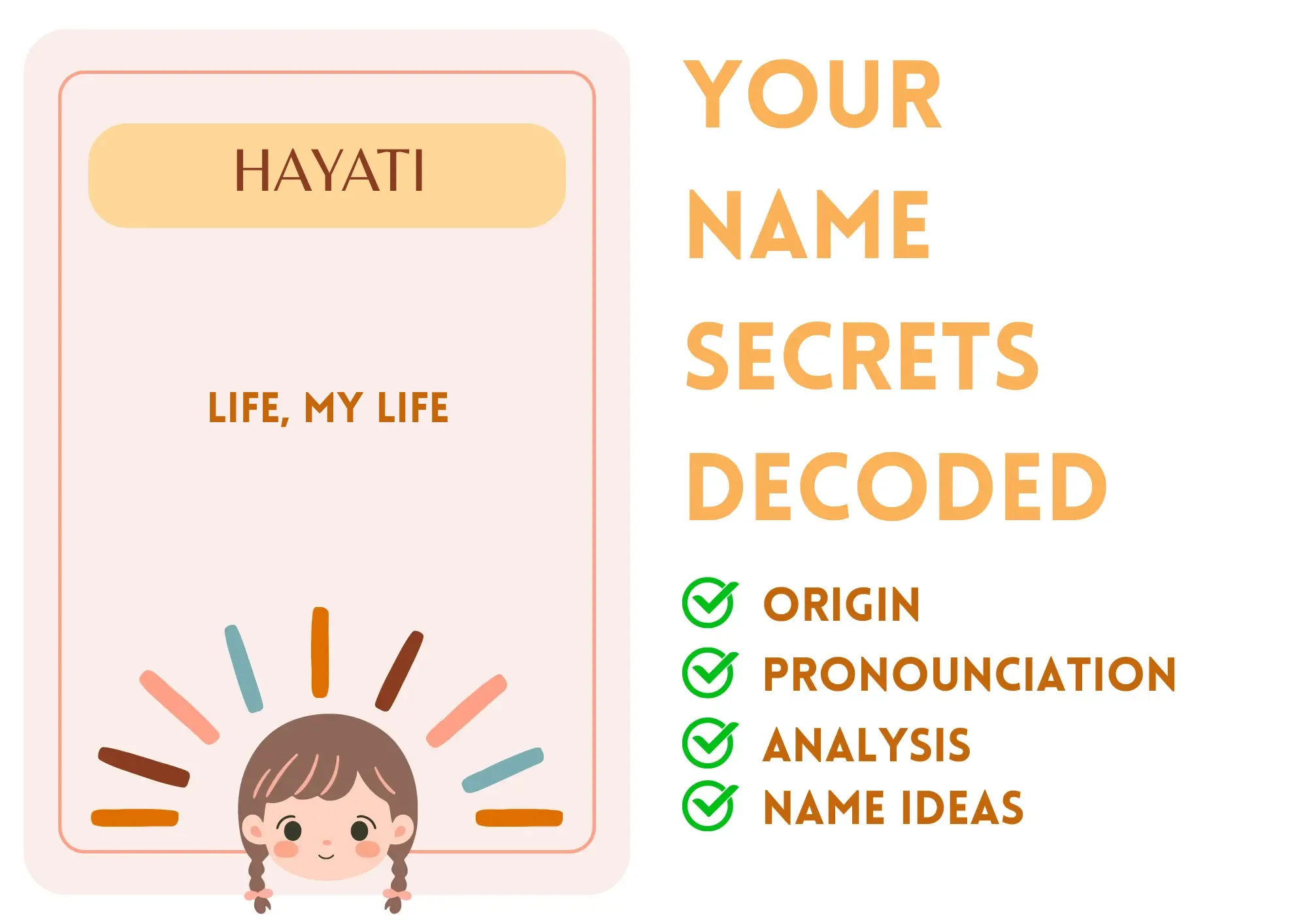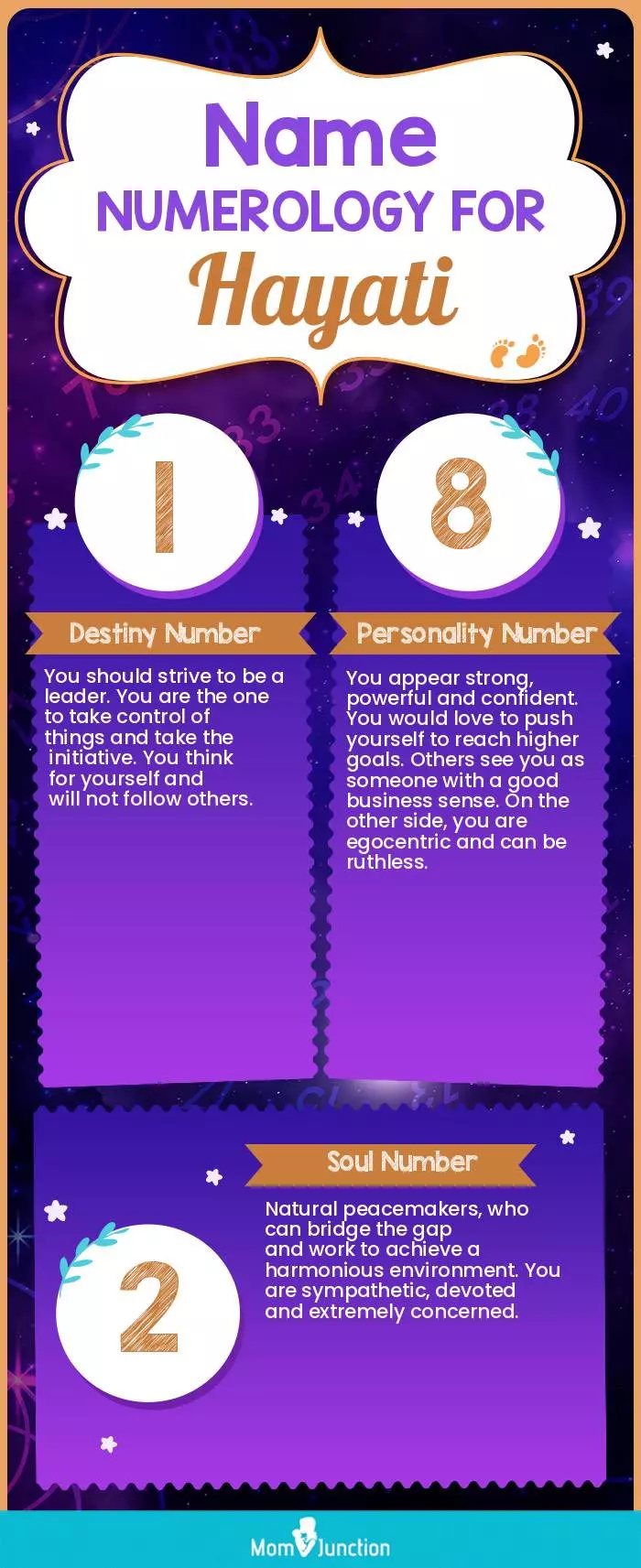Unpacking The Meaning Of Hayati: A Look At What This Word Really Means
Have you ever heard a word that just seems to carry so much feeling, so much warmth, but you aren't quite sure what it truly means? That's often the case with "Hayati." It's a term that travels across cultures and languages, and it pops up in conversations, songs, and poems, usually bringing with it a sense of deep connection. Many people wonder what this special word truly signifies, especially when they hear it used in different ways. It's a word that really, really pulls at the heartstrings for many, and it's quite a beautiful thing to explore.
This single word, "Hayati," seems to hold a whole universe of affection within its few letters. You might hear it whispered between loved ones, sung in a popular tune, or even used as a friendly greeting. So, it's almost natural to be curious about its origins and the many ways people express themselves with it. We're going to take a look at what makes this term so special and why it resonates with so many.
Just like trying to figure out the exact meaning of a new symbol in math, as someone might encounter with the ∈ sign, understanding "Hayati" means looking beyond a simple dictionary definition. It's not just about what the word literally translates to, but also about the feelings, traditions, and personal connections it brings along. So, we'll explore the layers of its sense, helping you grasp why this word holds such a cherished spot in many hearts, and how its meaning, arguably, can be as nuanced as any complex concept.
- Exploring The Girthmaster Miaz Video A Comprehensive Guide.linkmaz
- Is Mira Duterte Adopted Unveiling The Truth Behind The Controversy.linkmaz
- Subhashre Sahu Viral Mms The Story Behind The Controversy.linkmaz
- Hnd 765.linkmaz
- Filmyfly World Bollywood The Ultimate Destination For Bollywood Enthusiasts.linkmaz
Table of Contents
- What Does "Hayati" Truly Mean?
- Linguistic Roots and Core Sense
- Beyond the Dictionary: Cultural Echoes
- "Hayati" in Daily Life and Expression
- As a Term of Endearment
- Conveying Deep Affection
- The Personal Interpretation of "Hayati"
- A Unique Connection
- Context Shapes Understanding
- "Hayati" and the Search for Clarity
- Understanding Nuance, a Bit Like Symbols
- When Meanings Shift
- Why "Hayati" Resonates So Deeply
- Common Questions About "Hayati"
- Is "Hayati" only for romantic partners?
- Can men use "Hayati" for women?
- What is the difference between "Habibi" and "Hayati"?
What Does "Hayati" Truly Mean?
At its very core, "Hayati" comes from Arabic. It literally means "my life." This simple translation, however, only scratches the surface of its true feeling. Think of it like a fundamental mathematical operator; it has a basic, fixed definition, but its application can be incredibly broad and powerful. This word carries a weight of personal significance, and that's really what makes it so impactful.
Linguistic Roots and Core Sense
The word "Hayati" comes from the Arabic root "hayah," which means "life." The "i" at the end makes it possessive, so it becomes "my life." It's a direct and very personal way to address someone. This directness is quite similar to how a variable might be defined in an equation; it's specific and sets a clear reference point, allowing for further operations or expressions of meaning. It's a term that is, you know, deeply rooted in its language.
Beyond the Dictionary: Cultural Echoes
While "my life" is the literal translation, the cultural sense of "Hayati" goes much deeper. It's often used as a term of profound endearment. People use it to express how much someone means to them, almost as if that person is the very essence of their existence. This broader sense is a bit like how certain mathematical conventions, such as whether zero is a natural number, vary between different authors or fields; the core idea is there, but the exact usage can differ based on tradition or context. So, it really isn't just a simple word.
- Doraha Web Series.linkmaz
- Cottontailva Of Leaks.linkmaz
- Bollyflix Ninja Movies Bollywood Your Ultimate Guide To Streaming Bollywood Films.linkmaz
- Sophie Rain Onlyfans Leaked.linkmaz
- Camilla Araujo Erome.linkmaz
"Hayati" in Daily Life and Expression
You'll hear "Hayati" used in many different settings, not just in formal speech. It's a common expression of affection among family members, close friends, and, of course, romantic partners. The way it sounds and feels often depends on the tone of voice and the relationship between the people speaking. It's almost like a flexible tool for connection.
As a Term of Endearment
For many, "Hayati" is a beautiful way to show someone they are cherished. A parent might call their child "Hayati," expressing unconditional love and the preciousness of their offspring. Similarly, a husband might call his wife "Hayati," signifying that she is his world. It's a truly versatile term that conveys deep warmth. This usage is rather like how a single symbol, say <, can be used in different mathematical contexts to show a relationship, whether it's for numbers or sets.
Conveying Deep Affection
When someone uses "Hayati," they are usually communicating a very strong feeling of love, care, or importance. It's more than just a casual pet name; it carries a weight of significance. It's like saying, "You are so important to me, you are vital to my being." This deep connection is often why the word resonates so strongly. It is, you know, a very powerful way to express feelings.
The Personal Interpretation of "Hayati"
The beauty of "Hayati" is how personal its sense can be. While it has a general meaning of "my life" or "my darling," the specific feeling it evokes can be unique to each individual and each relationship. It's not a one-size-fits-all term, and that's actually quite wonderful.
A Unique Connection
For some, "Hayati" might represent a bond that feels irreplaceable, like a soulmate connection. For others, it could be a term used for a beloved family member who has always been a pillar of support. The emotional weight of the word changes with the bond it describes. This individual interpretation is a bit like how different people might view the "reputation points" system on a platform; its value and impact are understood through personal experience and interaction. It's really quite a personal thing.
Context Shapes Understanding
The situation in which "Hayati" is used plays a big part in its exact meaning. A playful "Hayati" between friends will feel different from a tender "Hayati" shared between spouses. The context, the tone, and the relationship all contribute to the word's precise feeling. This is somewhat like how the meaning of various equality symbols changes depending on whether you are talking about numbers, sets, or vectors; the symbol itself is fixed, but its exact sense comes from its surroundings. So, you know, paying attention to the context is key.
"Hayati" and the Search for Clarity
Just as in mathematics, where symbols like ∈ or ⊂ need clear definitions to avoid confusion, understanding a word like "Hayati" also benefits from exploring its nuances. Sometimes, the sense of a word can feel a bit ambiguous, and that's okay. It often means there's a richer story behind it.
Understanding Nuance, a Bit Like Symbols
When someone says, "I have started seeing the ∈ symbol in math, what exactly does it mean?" they are seeking clarity on a fundamental concept. Similarly, when people ask about the "meaning of Hayati," they are looking for a deeper sense than just a simple translation. They want to grasp the emotional and cultural layers. This exploration of nuance is quite important for full comprehension, and it's something we often see when trying to pin down the exact use of a word or symbol. Learn more about on our site, and it's a topic that really sparks interest.
When Meanings Shift
Sometimes, words can have a "syntactic ambiguity," as one might describe a sentence that could be interpreted in more than one way. "Hayati" can also have this kind of subtle shift in meaning depending on who says it and to whom. It's not faulty semantics, but rather a reflection of the word's flexibility in expressing affection. Just like how some might debate whether a dependent variable "cares" about an independent one, the exact "care" implied by "Hayati" shifts with the relationship. This flexibility, you know, allows for a wider range of expression.
Why "Hayati" Resonates So Deeply
The enduring appeal of "Hayati" comes from its ability to express a very fundamental human need: the need for connection and belonging. It's a word that speaks to the heart, acknowledging the profound impact someone has on another's "life." When used sincerely, it truly builds bridges between people. This deep resonance is perhaps why terms of endearment, generally, hold such a special place in language. It's a word that, basically, just feels right.
In a world where words can sometimes feel superficial, "Hayati" stands out as a term that carries genuine depth. It's a reminder of the preciousness of human relationships and the power of language to convey our deepest feelings. The continued use and exploration of its sense show that people are always looking for ways to express profound affection. So, it's quite a timeless expression of care.
This word, "Hayati," continues to be a cherished expression across many cultures, showing its lasting appeal. Its sense is rich, personal, and deeply felt by those who use it and those who hear it. Understanding "Hayati" means appreciating its linguistic roots, its cultural echoes, and the unique personal connections it represents. It's a word that truly encapsulates the idea of someone being "my life," and that's a very beautiful thing to say to another person. If you're curious about more such terms, you can link to this page for more insights.
Common Questions About "Hayati"
Is "Hayati" only for romantic partners?
No, not at all. While "Hayati" is very common among romantic partners, it's also widely used for family members, especially children, and sometimes even very close friends. Its use depends on the cultural context and the depth of the relationship. It's a bit like how the term "friend" can mean different things to different people; it's a broad category.
Can men use "Hayati" for women?
Yes, absolutely. Men frequently use "Hayati" to address women, particularly their wives, daughters, or other female loved ones. It's a term of endearment that crosses gender lines in its application. It's a very common practice, and you'll hear it often in daily conversations.
What is the difference between "Habibi" and "Hayati"?
"Habibi" means "my love" (for a male) or "Habibti" (for a female), and it's also a very common term of endearment. "Hayati" means "my life." While both express affection, "Hayati" often carries a slightly deeper, more profound sense of someone being essential to one's existence. It's like the difference between saying "my dear" and "my very essence"; both are loving, but one has a bit more weight. You know, they are both sweet words.
- Exploring The World Of Hd Hub 4 U Movies South A Comprehensive Guide.linkmaz
- La Varita De Emiliano Video A Deep Dive Into The Magical World.linkmaz
- Subhashree Sahu Mms Video Unveiling The Facts And Debunking The Myths.linkmaz
- Why Did Chester Bennington Die.linkmaz
- Kannada Movies 2025 Your Guide To The Mustsee Films.linkmaz

Hayati - Islamic Girl Name Meaning and Pronunciation
HAYATI (حياتي) Meaning in Arabic & English - Arabic Names

Explore Hayati: Complete Guide To Meaning, Pronunciation & Variations